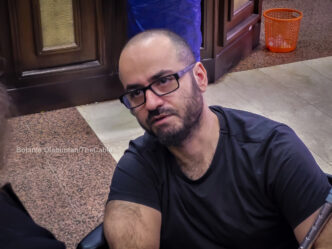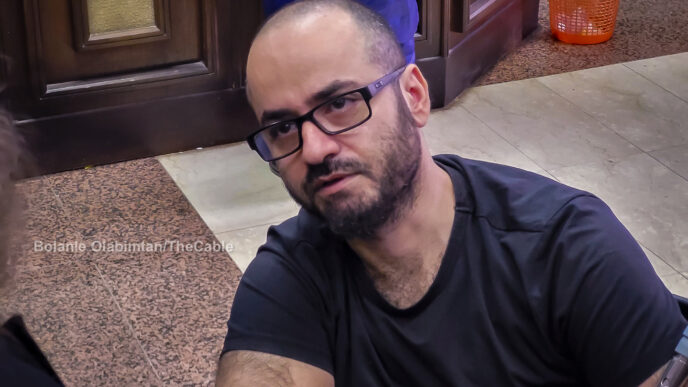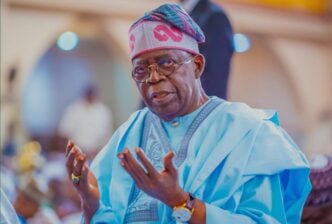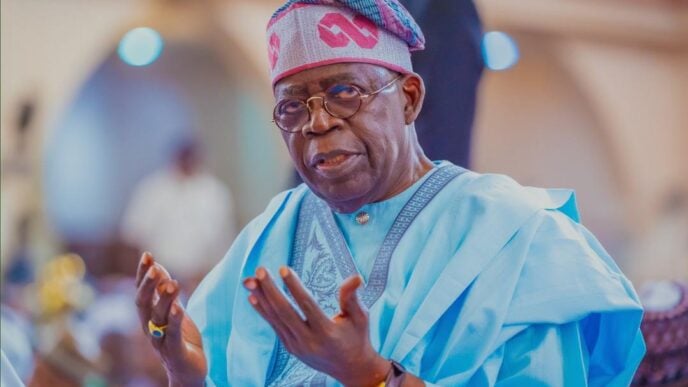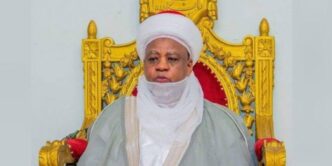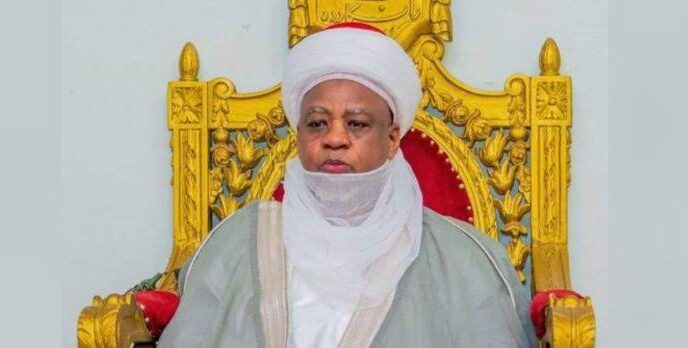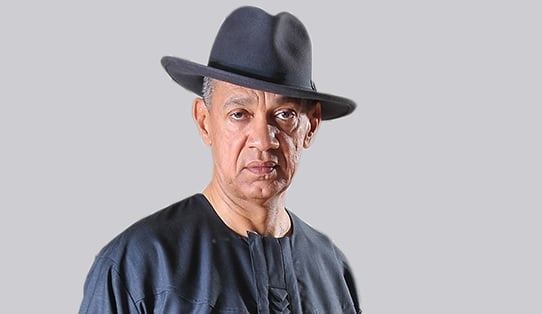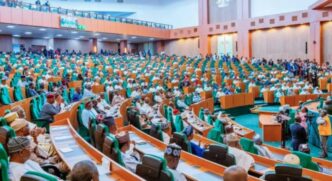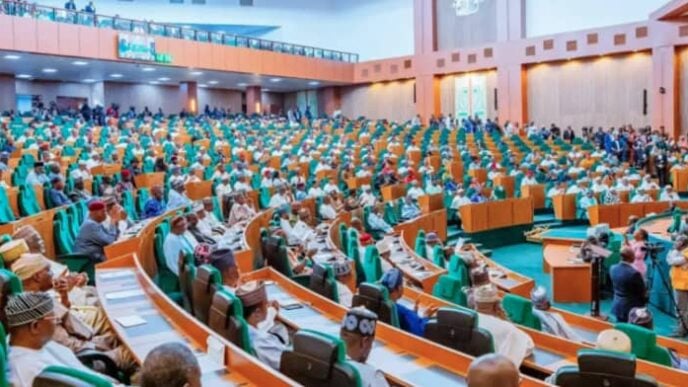“When I’m in the grave, I would still be talking,” Ayo Adebanjo said in an interview with Punch in 2018. “So, even my enemies would say that Adebanjo, even though he was a bad man, would always make his stand known.”
The irrepressible political leader died on Friday at 96, and every adjective that describes him must come after the word “hardliner”.
Born on April 10, 1929, in Isanya Ogbo, a village close to Ijebu Ode, Ogun, Ayodele Samuel Adebanjo was a fearless voice that refused to be muffled, not by colonialists, military juntas, or successive civilian governments. For over seven decades, he firmly held on to his interpretation of true federalism, restructuring and the teachings of Obafemi Awolowo, a former premier of Nigeria’s defunct western region.
He was a lawyer and journalist who understood the power of media and harnessed it exceedingly. There are a few Nigerians whose names have made the national newspaper frontpages across several generations, such as Adebanjo’s. He began making the news in the 1950s as the organising secretary of the Action Group (AG), proselytising against colonialism and fighting for the country’s independence. In the 1990s, Adebanjo was one of the prominent leaders of the National Democratic Coalition (NADECO) and was jailed repeatedly for his advocacy for democracy. In his twilight, he drummed against the “oppressive” 1999 constitution and fought successive governments to entrench the “rule of law”.
Advertisement
Adebanjo remained undeterred. He was still talking, well into his 90s. At times, he was a grizzled, lone wolf howling against what he perceived as injustice and departure from the visions of the country’s founding leaders. Even if it was going against the direction of Afenifere, a Yoruba social-cultural group he co-founded, to support Peter Obi of the Labour Party during the 2023 presidential election. He was never afraid to fight alone and intensely against a majority.
He believed “Nigeria is not as democratic as we fought for” and wanted to achieve that vision before he passed on. He carried placards both in Nigeria and London for the country’s independence and fought fiercely against the squandering of his generation’s efforts.
SACKED FROM HIS FIRST JOB FOR CHALLENGING A WHITE MAN
Advertisement
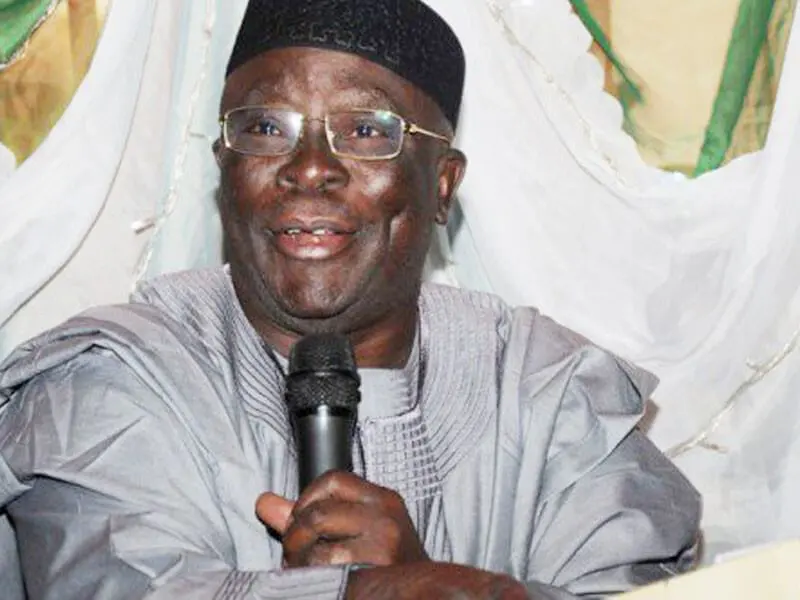
Adebanjo’s audacious outspokenness against power was not a trait he developed later in life. The doggedness came naturally alongside the playboy’s good looks, which had him nicknamed “Spotless Magus” by classmates.
After basic education in 1950, Adebanjo was employed by the department for the registration of birth and death at the ministry of health. It was young Adebanjo’s first job, yet he did not hesitate to tell off a superior officer over a perceived rudeness.
“One morning, a white man just came into the office and asked for the data office, and I said, ‘Is that how you say good morning in your country?'” Adebanjo recounted.
“He was furious. So, he went upstairs. In those days, a white man was the permanent secretary. The administrative secretary in the ministry called the chief clerk to summon me. He asked me what happened and I relayed it to him, and the man screamed and said ‘You don’t talk to a white man like that’.
Advertisement
“I said it was because the white man didn’t have good training. He didn’t put me there; how could he just enter the office and ask me ‘where is the data office?’ He didn’t employ me. I told them he should have the courtesy to say good morning before I would ask him what I could do for him. Then, they gave me a query, and they asked me to write a letter of apology, and I told them I had no reason to apologise. Was it right for him to rudely ask me something without the courtesy of saying good morning? So, they terminated my appointment.”
AN AZIKIWE FANBOY TURNED ‘AWOIST’
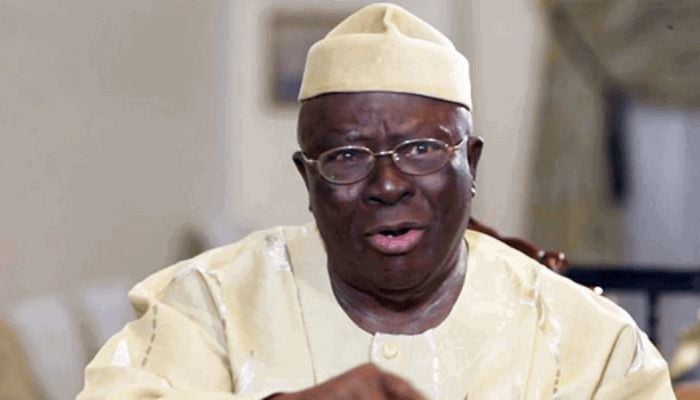
Without his strong will, Adebanjo would not have attained complete primary education or gone on to achieve all he did. His father was a star goldsmith in Isanya Ogbo. He was a popular figure in the community and had many wives. The father pulled out of paying Adebanjo’s school fees after just two years in primary school.
Advertisement
The responsibility went to his petty trader mother after the family relocated to Lagos. Adebanjo was the woman’s only child. He had to save money from his stipend to buy the entrance form for his secondary entrance exam.
“For the period of my secondary school, I paid the equivalent of 72 naira. That was what I spent to acquire my secondary education,” Adebanjo told Vanguard in 2011.
Advertisement
As a schoolboy, Adebanjo was exposed to politically-charged newspapers and developed a particular taste for West African Pilot and the column written by Nnamdi Azikiwe.
“I was a Zik fan and my political activism was developed through reading the articles of Dr. Nnamdi Azikiwe. You would be surprised that as a primary five pupil in 1942, I was buying a newspaper, The West African Pilot, at that time,” he said.
Advertisement
“We all admired Dr. Azikiwe. He had a column in The Pilot named ‘Inside Stuff by Zik.’ When I read his piece, I would commit it to my memory.”
However, his head was soon turned by another political stalwart. He read ‘Path to Nigerian Freedom’, a book written by Obafemi Awolowo. He fell in love with its argument that Nigeria could not survive the unitary form of government used by the colonial masters because of the country’s multicultural, multilingual and multiethnic nature.
Advertisement
Awolowo’s view departed from Azikiwe’s perspective that one strong federal government would better ensure the survival of Nigeria.
Shortly, Adebanjo abandoned Azikiwe as his political hero and became an “Awoist”.
“He [Awolowo] said that we were not a nation but a geographical expression and that it must have a system of government whereby each nationality could develop at its own pace,” Adebanjo said.
“That is what led to federalism. When he started to preach that, we departed from Azikiwe. We departed from Azikiwe on principle.”
ADEBANJO UNDER AWOLOWO’S MENTORSHIP
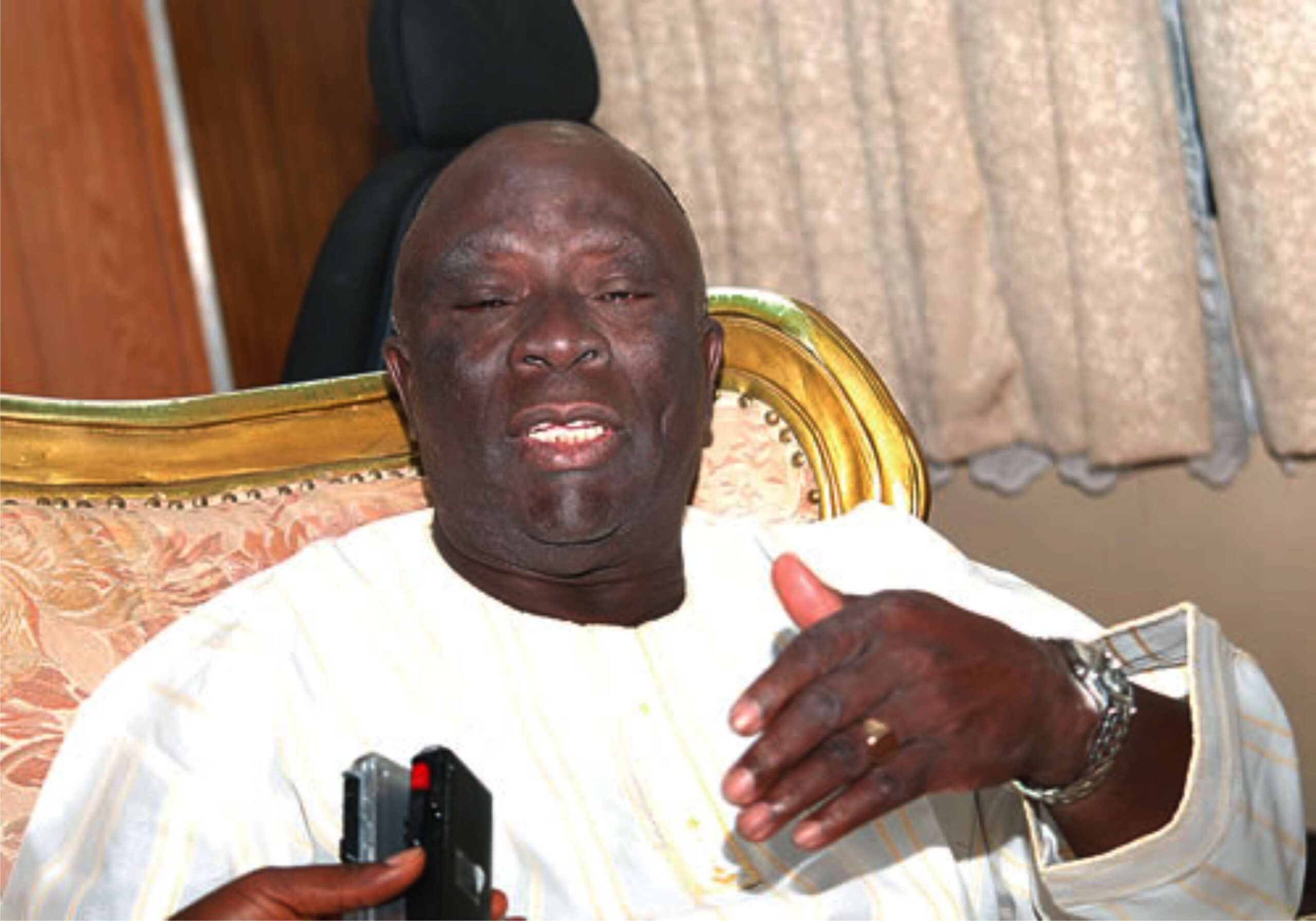
After being sacked from his job in the health ministry, Adebanjo became a journalist with Daily Service, now defunct national paper. His writing and speaking talent endeared him to the budding Action Group (AG) hierarchy, a political party founded by Awolowo in 1951.
“It was from the press that I was drafted to the Action Group as the general-secretary. I enjoyed being a journalist because I interviewed personalities and that exposes you to a lot of things, you learn many things and you gain access to many places that you ordinarily wouldn’t have access to,” Adebanjo said.
Soon, he was made the party’s organising secretary.
“Ours was not like the kind of what you have these days where organising secretaries just issue press releases,” he said.
“No! We would go to the people and explain to them why they should join the Action Group and why they should discard the NCNC. All the bad doings of the NCNC, we told them; what Awolowo would do, we told them. If you vote for us, Awolowo will give you free education and so on.”
Once among the leaders of AG, Adebanjo came under the wings of his political hero as a teenager. He built a bond with Awolowo, and their families shared the connection.
Adebanjo described Awolowo as a “super, wonderful human being” who believed “government must be fair to everybody”.
“He did not believe in anybody saying politics is a dirty game. He would say it is people who play politics that are dirty,” he said.
“If you were with Chief Awolowo and you were discussing a political enemy, he would ask you, ‘Are you sure?’ He would tell you not to lie against anyone because if you did and we pray for God to deal with that person.”
CHARGED FOR TREASON IN 1966
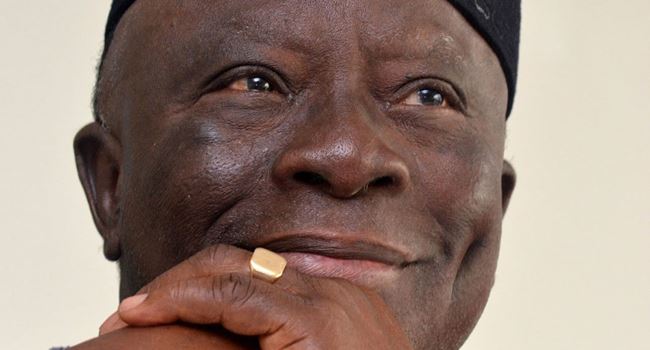
Adebanjo proceeded to the UK to study law and became a lawyer. He was also said to have met his wife, Christy, in the UK. He returned to Nigeria and worked at Awolowo’s firm. However, in 1966, an internal crisis within AG led to some party leaders being accused of treasonable felonies.
“I was still in his [Awolowo] chamber when we were accused of treasonable felony because we went to Ghana to study the activities of the CPP organisation,” he said.
Adebanjo was in exile in Ghana under the protection of Kwame Nkrumah, but his father was arrested and detained for almost a year in his stead.
“When I was in Ghana, there was a coup there that toppled Nkrumah. So they sent all of us on exile back to Aguiyi Ironsi in Nigeria,” he said.
“He was the one in power then. When they were bringing us back to Nigeria, they sent us to Kirikiri prison.”
STRUGGLE FOR DEMOCRACY WITH NADECO AND AFENIFERE
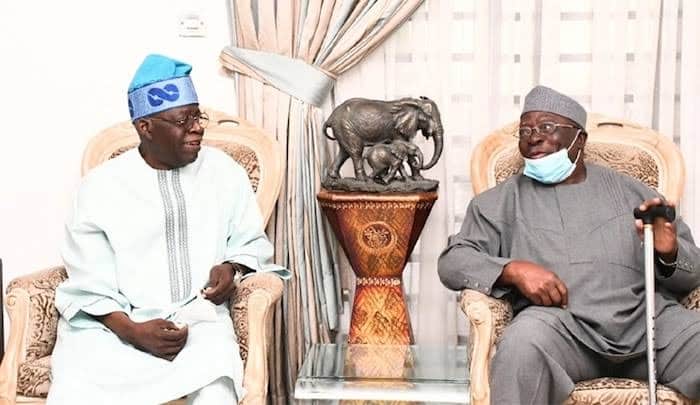
Adebanjo joined the defunct National Democratic Coalition (NADECO), an advocacy group that called for the return of democracy to Nigeria.
He became a chieftain of the group and was a prominent voice in the agitation for the actualisation of the annulled June 12, 1993, presidential election that Moshood Abiola was presumed to have won.
Adebanjo was arrested severally by the military government headed by Sani Abacha during the struggle.
During the fight against military dictators, Adebanjo was one of the founding members of Afenifere as a political party. The group’s agenda was simple: true federalism, significant control of resources by the states and the convocation of a sovereign national conference.
“Afenifere was a political party. It was from the Action Group of the First Republic. But when the army came, they banned all political parties. They did not ban Afenifere, the local name for Action Group in Yoruba, because it’s a local name,” Adebanjo said in an interview with The Quest Times in 2022.
“We adopted the name Afenifere as a means of survival from the oppression of the military.”
Adebanjo said the group soon switched from a political entity to a Yoruba socio-cultural platform to escape detection. However, when the Alliance for Democracy (AD) was founded in 1999, the party adopted Afenifere’s manifesto. Many Afenifere leaders moved to AD.
THE CALL FOR TRUE FEDERALISM
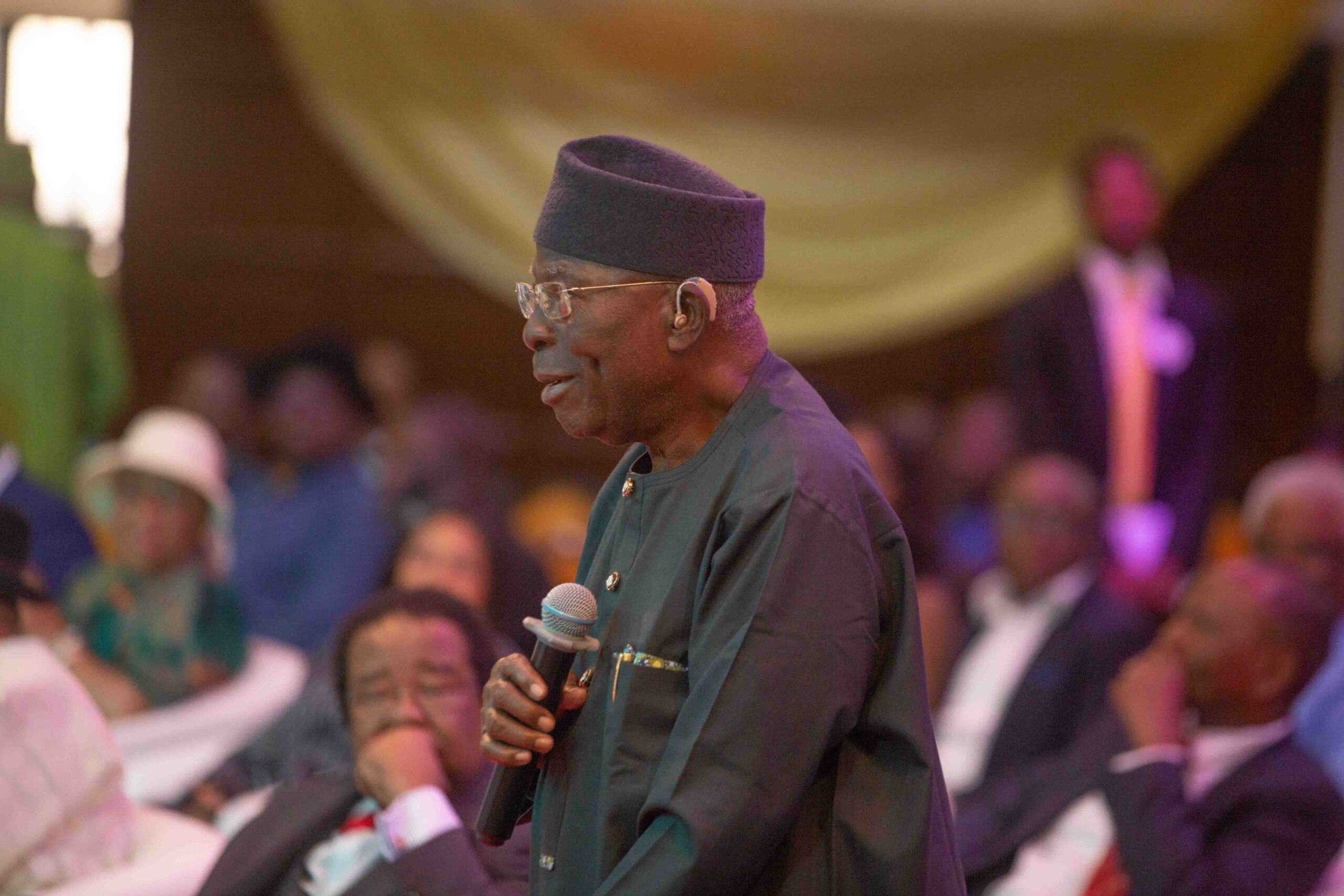
Adebanjo was one of the most prominent critics of Nigeria’s 1999 constitution. He said the constitution does not reflect true federalism.
He continuously called for the outright overhaul of the constitution.
In a chat with TheCable in 2024, Adebanjo described the constitution as “fraudulent”, adding that “there can be no progress until that constitution is thoroughly changed”.
“Until they bring down this constitution and we have a new beginning, we can’t make any headway. You are just patching things up, amending a constitution that you didn’t make. You are amending a constitution that is already broken down,” he said.
Adebanjo added that changing the constitution back to true federalism is the solution.
“Let all the federating states be autonomous. Let’s go back to the 1963 constitution. No more, no less. Anything short of that, you are just wasting your time.”
Add a comment
